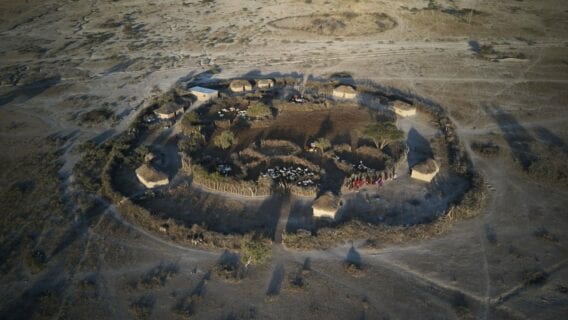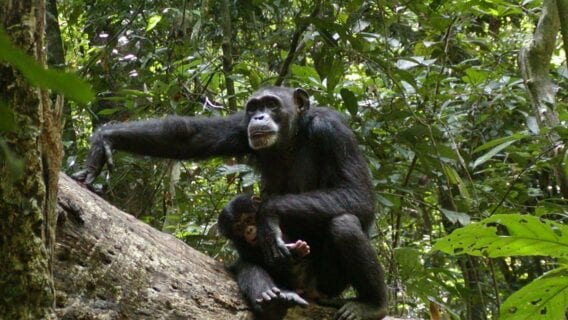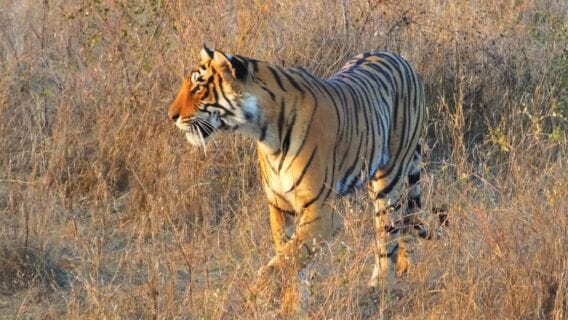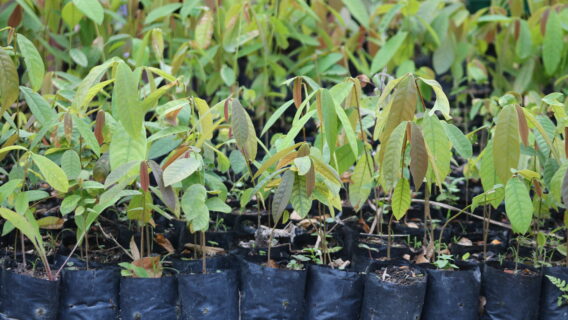
Project
Mitigating human threats on freshwater species and ecosystems in Liberia
Initiative
Duration
2024 - 2025
Location
Liberia
Species protected
Liberonautes nanoides
Liberonautes nanoide
Paramphilius firestonei
Paramphilius firestonei
Project overview
This project aims to mitigate human threats on freshwater threatened fishes, decapods, molluscs, odonates and their habitats in Cestos-Senkwen, as follows:
- Conduct community sensitisation/education on project activities, including promoting climate-smart and sustainable agriculture, sustainable in-land fishery and freshwater aquaculture, relevant to motivate affected communities transition from their traditional over-exploitation of targeted freshwater species.
Threats

Habitat loss & degradation

Over-exploitation of natural resources & prey depletion

Poaching
- Supply sustainable fishing nets to local fishermen to mitigate over-exploitation of freshwater threatened fishes.
- Develop landscape innovative aquaculture (starting with gift-tilapias), as alternative protein and financial sustainability mechanism, which is economically-viable to transition vulnerable women and young people from their traditional poaching and trading of bush meat products for living.
- Conduct the first ever “Freshwater Species and Ecosystem Research” in Liberia, with emphasis on threatened fishes, decapods, molluscs and odonates, as case study for future scaling and replication in similar freshwater and key conservation areas in Liberia and other parts of the Upper Guinea Biodiversity Hotspot of West Africa.
Project objectives
- Conduct community awareness and education, through town-hall meetings and radio talk shows, the provision of sustainable fishing nets to local fishermen along the Cestos and Sanquin Rivers, and distribute 200 calendars for 2024/2025 with pictures of targeted freshwater threatened species, relevant to identify and mitigate over-exploitation of freshwater species in Cestos-Senkwen.
- Hire the services of the Forestry Development Authority (FDA) and National Fisheries & Aquaculture Authority (NaFAA), as facilitators, to train gender-sensitive local youth in ecosystem-based management skills, to empower them monitor freshwater and terrestrial fauna species and habitats and report conservation crimes to the Liberia National Police for prosecution.
- To hire the NaFAA to empower project staff and volunteers conduct freshwater species and ecosystem research, with emphasis on species density and breeding site tracking and ecosystem healthiness.
- Develop aquaculture, as landscape innovative protein and financial sustainability mechanism, with the potential to produce 18,000 tilapias at affordable prices, relevant to mitigate the poaching and trading of protected animals, and use income to sustain project activities without dependence solely on external donor funding.
Project activities
- Conduct two training workshops, one each at Togbaville and ITI, inviting 50 participants, including project staff, fishermen, farmers, women and youth, with emphasis on freshwater species, ecosystems and sustainable agriculture and enhancement of ecological restoration in Cestos-Senkwen, facilitated by FDA, NaFAA and Community Aid for Rehabilitation & Development.
- Recruit and train gender-sensitive youth as eco-guards (1 female and 1 male) from each of the 12 affected communities, to carry out daily monitoring of threatened species in communities and at key checkpoints, and report illegal wildlife trading cases to the Liberia National Police for prosecution, ensuring that Cestos-Senkwen becomes a No-Go Zone for conservation crimes.
- Empower project staff/volunteers to conduct the first ever “Research on Freshwater species and Ecosystems in Liberia”, through field trips along the Cestos and Sanquin Rivers, including their tributaries, tracking freshwater species density and breeding sites, and collecting data, using NaFAA designed “Freshwater Fish Species and Habitat Assessment survey Forms”, facilitated and mentored by NaFAA.
- Supply 36 rolls of sustainable fishing nets to local fishermen, as interest-free revolving program, to mitigate over-exploitation of freshwater threatened fishes, and ensure the availability of freshwater fish products on local markets.
- Empower local youth develop aquaculture site, supply productive “Gift Tilapia Fingerlings” from the Sustainable Fish & Farming Enterprise of Liberia in Monrovia, and empower community-based Friends of Nature Association to manage the aquaculture site, harvested fish products and incomes.
This project is implemented by Community Aid for Rehabilitation & Development.




